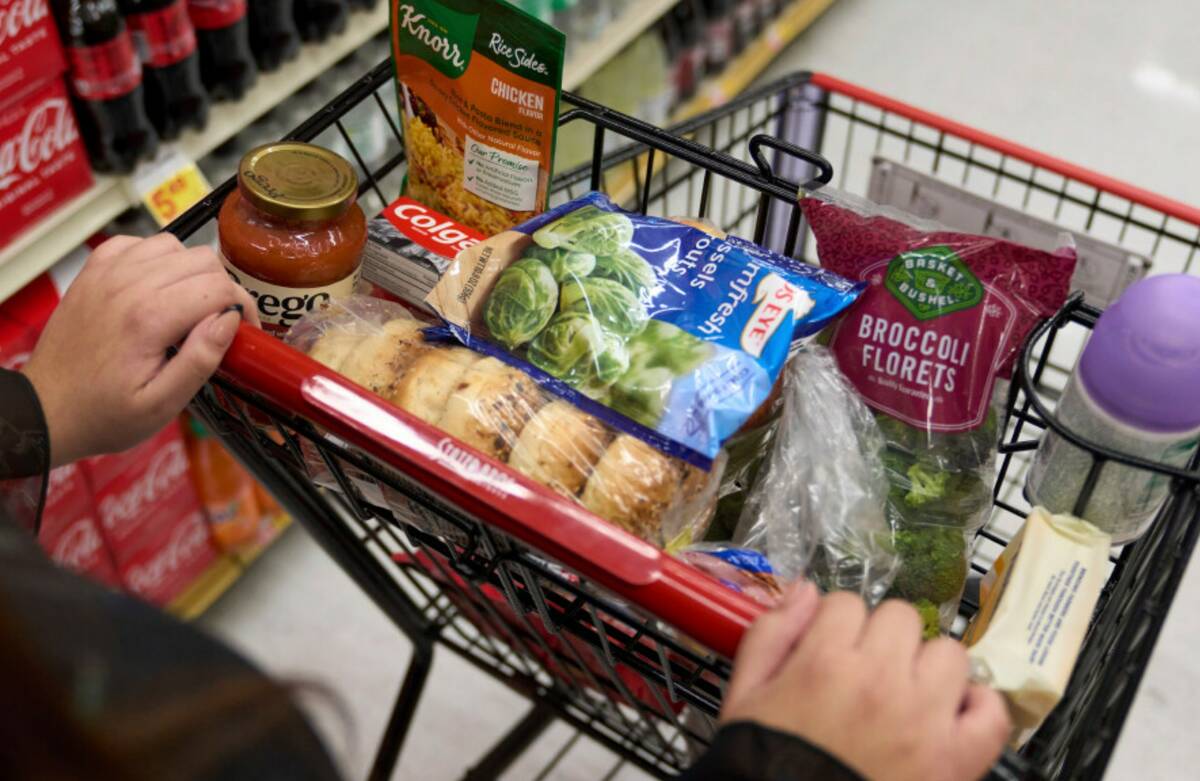Struggling to pay for groceries? Here’s how to apply for SNAP benefits
If the totals on your recent supermarket receipts have gone from eye-popping to anxiety-inducing, you’re not alone.
Nevadans are paying more for groceries than almost any other state in the country, according to a January report.
If high grocery prices are starting to strain your family’s finances, you might be able to get assistance from the state.
The Supplemental Nutrition Assistance Program is a federally funded program that helps people buy food. Commonly referred to as “food stamps,” the program can help bridge the gap in your monthly expenses.
Approximately 504,000 Nevadans receive SNAP benefits, according to the Nevada Department of Health and Human Services.
The program cost the federal government $119.4 billion in fiscal year 2022, according to the Pew Research Center.
Administrative costs for the program, however, are split evenly between the federal government and state governments. Nevada’s projected cost for that portion is predicted to be approximately $29.5 million in fiscal year 2025, which runs July 1, 2024 through June 30, 2025.
Here’s what you need to know to apply.
Who is eligible?
People who are low income, are unemployed or work part time, receive other public assistance payments, are elderly, disabled or homeless are all usually eligible for SNAP benefits.
Part of that eligibility is based on the total income of a household. A household’s gross monthly income — the amount of money made before taxes are deducted — must be at or below 130 percent of the poverty line. The household’s net monthly income — the amount left over after taxes are deducted — must be at or below the poverty line.
A household can only have assets worth $2,750 or less. If a household has a person who is over the age of 60 or has a member that has a disability, that limit is $4,250.
Adults between the ages of 18 and 50 that don’t have dependent are required to work 20 hours a week or meet other work requirements.
You can also use this online tool to see if you’re eligible for benefits.
How do I apply?
To start the process, you’ll have to submit an application, which requires the Social Security numbers of everyone in your household, information about their income and work history, among other details.
The application can be completed online or obtained and filed in person at a local welfare office. Office locations and phone numbers can be found here. The application can also be completed at home and mailed in.
A government worker will then reach out to conduct an interview to further determine eligibility for the program.
How soon can I expect to receive them?
If the department determines that you qualify for the benefits, you’ll be sent an Electronic Benefit Transfer card with the approved fund amount on it. The amount should appear on the card within 30 days from the date the office received your application.
If your household needs immediate help, inform the Welfare Office. The office may approve your eligibility for the benefits within one week.
How much will I receive?
The amount you receive is based on a federal estimate of how much it costs to buy food and prepare meals for your household. That amount is dependent on how many people are in your household, and how much money is left over once other expenses have been paid.
A one person household can receive up to $291, while a four-person household could receive up to $973 a month.
It’s important to note that SNAP benefits aren’t likely to cover all of your household’s food expenses. Households are expected to spend approximately 30 percent of their own resources on food.
How to use them?
The EBT card operates like a debit card, and money is automatically loaded onto the card each month.
The card can be used to buy most foods, including fruits and vegetables, meat, dairy products, bread and cereal, and other foods. The benefits can’t be used for alcohol, medicine or supplements, foods that are hot at the point of sale and other nonfood items like pet food or cleaning supplies.
Contact Taylor R. Avery at TAvery@reviewjournal.com. Follow @travery98 on X.






















